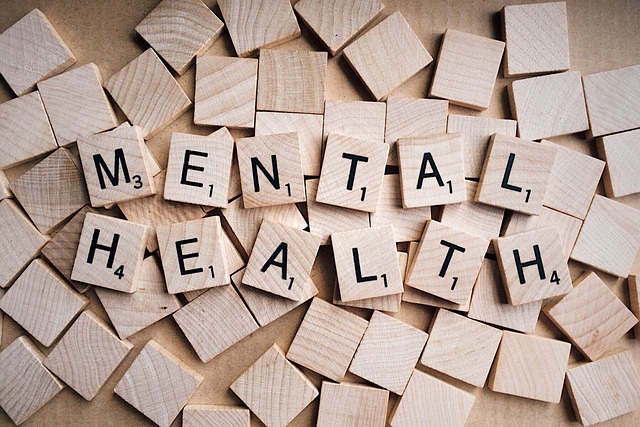It isn’t uncommon for people with alcoholism also having diagnosed with mental health disorders. And the co-occurrence of both refers to as dual diagnosis. For example, an individual with anxiety or depression consumes alcohol to self-medicate the symptoms of irritability, helplessness, insomnia, and compulsive behaviours. Even though several pieces of research show that people drinking excessive alcohol doesn’t cause behavioural conditions, they exacerbate mental illness symptoms.
Also, having alcoholism or mental health disorder doesn’t guarantee the development of co-occurring disorders. However, the chances of dual diagnosis are higher down the road. It is because, with dual diagnosis, the symptoms of alcoholism and mental health illness often feed off each other. For example, any amount of alcohol can affect a person’s emotional well-being and vice-versa. And if left untreated, the dual diagnosis condition can go rogue, taking a toll on an individual’s life and their loved ones.
Nevertheless, alcohol help is available, and so is mental health illness treatment. Under the care of medical professionals, dual diagnosis can be treated in an expert rehab setting. In addition, the treatment programs specialising in co-occurring disorders offer numerous therapies to treat an individual as a whole rather than addressing only one condition at a time.
This article will explain how mental illness and alcoholism are related, their symptoms, and treatment options.
Table of Contents
Common Mental Illnesses That Occur with Alcohol Abuse
Alcoholism results in several mental health conditions, such as depression, bipolar disorder, and obsessive-compulsive disorder (OCD). Though each mental illness affects alcoholism differently, it depends on its longevity and severity. How? Read below to know.
Depression
One of the most common mental health illnesses worldwide, depression affects a person’s thoughts and actions. It is a mood disorder that slows everything down around a person and makes them unaware of their surroundings, irrespective of age, gender, and background.
Depression symptoms include the following:
- Difficulty concentrating
- Insomnia
- Short-tempered
- Restlessness
- Loss of interest in hobbies and activities
- Decreased energy
As a result of these symptoms, people use alcohol as a quick fix to suppress them. However, self-medicating with alcohol can be dangerous and cause life-threatening consequences. It happens because alcohol stimulates the brain’s reward system, leading to a “high”. And the continuous use of alcohol forces the body to rely on drinking to achieve happy feelings, leading to alcohol dependence or addiction. Also, quitting alcohol in these cases can cause deteriorating effects on a person’s health because the body goes into shock. And it ends up intensifying the symptoms of depression, increasing the risks of self-harm.
Bipolar Disorder
Roughly 1.3 million people have bipolar disorder in the UK. Bipolar disorder is a manic-depressive illness that involves irregular mood swings. For example, a person’s feelings or emotions go from extreme highs to several lows. A person is generally upbeat, feels overly confident, and has abundant energy during the highs. In contrast, they may feel fatigued during the lows and experience restlessness and loss of interest. And these mood swings can result in a wide variety of mental and physical symptoms. However, sudden mood changes vary from person to person.
Also, people with bipolar disorder are at a high risk of developing a substance abuse disorder, such as alcohol abuse. And these conditions are incredibly dangerous when they co-occur.
Obsessive-Compulsive Disorder (OCD)
Obsessive-compulsive disorder is the most common type of anxiety disorder involving uncontrollable obsessions, which trigger repeated compulsions. The obsessions and compulsions associated with OCD include counting items, constantly arranging things in a specific way, and excessive hand washing. Because OCD can affect a person’s mental health, trying to self-medicate the symptoms can heighten anxiety levels. Another way of distracting from intrusive thoughts and behaviours caused by OCD is people turning to alcohol. And instead of causing relaxation, drinking makes OCD symptoms worse. Relying on alcohol to calm and relax the mind can quickly become a dangerous addiction. Hence, without proper alcohol help or treatment, it can cause severe health complications and emotional troubles.
Symptoms of Dual Diagnosis
Dual diagnosis symptoms vary depending on mental illness, frequency and longevity of alcohol consumption. However, knowing the warning signs beforehand help determine when there is a problem. A few symptoms of dual diagnosis include the following:
- Trouble concentrating or completing tasks
- Increased irritability, anger or anxiety
- Changes in appetite, such as eating more or less than usual
- Isolating themselves from family and friends
- Rationalising excessive alcohol consumption
- Neglecting personal or professional responsibilities
Dual Diagnosis Treatment
Dual diagnosis treatment depends on an individual’s unique needs. Typically, co-occurring disorder needs a comprehensive recovery plan. Safest and most effective ways to overcome co-occurring conditions, the treatment plans incorporate various therapies and aftercare programs to address both mental health illness and alcohol abuse.
Detoxification
Most alcohol rehabs include detoxification as the first line of treatment. The harmful toxins are removed from the body at this stage, and the patient is transferred to a residential treatment program to continue their recovery journey.
Inpatient Rehab
Inpatient rehab is a 24/7 residential facility where people go through addiction therapies under the supervision of medical professionals. Inpatient treatment offers therapy sessions, support groups, and medication-based therapies and suits well for co-occurring disorders, such as depression and alcoholism.
Outpatient Rehab
Unlike inpatient rehab, outpatient facilities allow patients to live at home and attend to personal and professional responsibilities while recovering from co-occurring disorders. However, this treatment requires individuals to travel to the facility several times a week. Also, with the help of counsellors and therapists, individuals will learn coping strategies to apply to everyday situations.
It’s Time to Start Recovery
Choosing alcohol rehab or a dual diagnosis facility is the first step to recovery. But, if you are unsure about which treatment plans to consider, contact your nearest facility for alcohol help or dual diagnosis help. The medical professionals at a rehab facility will also answer all your rehab-related questions.


